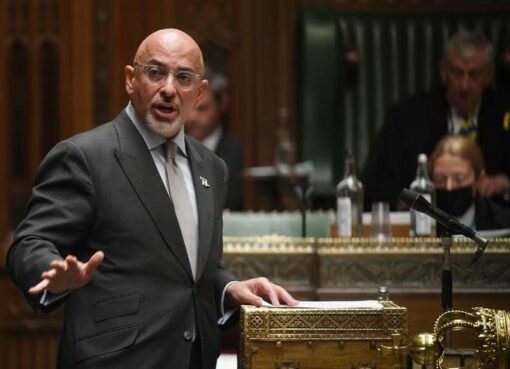ERBIL, Kurdistan Region – Iraq’s problems stem from the weaknesses at the institutional level which eventually lead to many people being involved in economic decision making in the country, Iraq’s finance minister said on Tuesday, adding that massive trade deficit with neighboring Iran is among several arrangements that cannot continue.
“The problem of the country is really institutional,” Iraq’s Finance Minister and Deputy Prime Minister Ali al-Allawi said in a discussion at the Atlantic Council on Tuesday, adding that the “institutional setup is extremely weak, the state itself, public administration is weak, we have several weak points in it that in some areas there are departments of government that report to different sources of authority.”
According to Allawi, the institutional weakness has eventually led to “many people getting involved in economic decision making.”
Iraq is ranked as one of the world’s top ten most corrupt countries, according to a report by Transparency International published in January.
The Berlin-based NGO ranked the perceived levels of corruption in Iraq as equal to the levels of abuse of power for private gain in Zimbabwe, Cambodia, and Honduras.
The country has for years, following the US invasion in 2003, been under the tremendous influence of neighboring Iran, to a point that Iran not only interferes in the country’s decision making, but also in its economy.
“Iran one way or the other is the largest supplier to the Iraqi market, the numbers are probably around 15 billion dollars a year,” Allawi said of Iran’s trade volume with Baghdad.
“Unfortunately, Iraq exports nothing to Iran, we have a massive trade deficit with the country, it is nearly all one way, and every time we meet with Iranian officials I tell them this cannot be a healthy relationship,” he said, adding that “this kind of asymmetrical arrangement cannot continue.”
Iraq’s main purchases from Iran are agricultural products, engineering services, construction materials, and energy, such as electricity and natural gas. Baghdad has received sanction waivers from Washington allowing it to buy Iranian electricity and natural gas.
Iraq was the largest importer of Iranian products since March 2021, importing $8.9 billion worth of goods, marking a 21 percent increase in Iranian exports to Iraq in comparison to last year, Iran’s director general of customs said earlier this month.
However, Iraq only exported $1.2 billion worth of goods to Iran, marking a 790 percent increase on Iranian imports from Iraq.
Allawi further addressed issues between Erbil and Baghdad over the Kurdistan Region’s share of the federal budget, calling it a “quid pro quo” situation.
“The KRG (Kurdistan Regional Government) budget is set on two basic criteria, one is entitlement to a certain percentage of the federal revenues after certain central expenses are deducted,” he said. “They are obliged to give the central government the proceeds from their oil exports and the proceeds from customs and other fees and taxes that are collected by the Kurdistan Regional Government that are federal revenues, part of which is retroceded back to the KRG especially customs.”
“We have not received any of the KRG proceeds either in cash or in estimates,” Allawi said, adding that the KRG’s inability to do so puts them in a position that the Iraqi government cannot act out the other aspect of the relationship either.
Erbil has struggled to pay civil servant salaries in full and on time for more than five years, due to the war against the Islamic State (ISIS), disputes with Baghdad, and a drop in oil prices. With a shortage of cash, the government took temporary austerity measures to reduce salaries of higher-earning employees in June 2020. Those earning more than 300,000 Iraqi dinars per month were hit with a 21 percent pay cut.
Iraq’s federal budget was passed by the parliament in late March 2021 after intense debates and more than three months after it was approved by the cabinet. One contentious point was Erbil’s share and requirements for the KRG to hand over oil. The Kurdistan Region receiving its share is conditional on Erbil fulfilling its commitments, which include handing over 250,000 barrels of oil per day, paying back money it borrowed from the Iraqi Trade Bank, sending non-oil revenues and prioritizing paying the salaries of its civil servants and Peshmerga before any other spending.
Baghdad in July started paying the KRG an advance payment of 200 billion dinars monthly to cover salaries of civil servants, but that has been delayed several times as well.
Addressing the continuity of Baghdad’s payments of 200 billion dinars to the KRG, Allawi told Rudaw following his conversation at the Atlantic Council that the payments “will continue in the context of the bilateral agreements that we have between the federal government and the KRG, obviously it is also related to the needs of the KRG for emergency funding and it has to be within the terms of the law and the agreements we had in the budget law.”
Source: Rudaw, 21. April 2022
https://www.rudaw.net/english/middleeast/iraq/200420221








Comment here